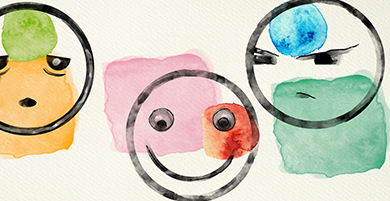Psychology
courses selected for you

Therapy for autistic children – selected approaches
Time commitment: 20 hours
Difficulty: Beginner

Solution-focused (brief) therapy
Time commitment: 20 hours
Difficulty: Medium


Cognitive behavioral therapy (CBT)
Time commitment: 20 hours
Difficulty: Medium

Emotion regulation course
Time commitment: 20 hours
Difficulty: Begginer

The feeling of happiness - experiencing and strengthening every day
Time commitment: 20 hours
Difficulty: Beginner
Sparks

Childhood is usually associated with joy, happiness, fun. However, this is not always true. That period may also be the worst in a person's life and directly impact the rest of their life. Childhood and experiences gained during, often have consequences in adult life. It is not always apparent that those specific events and situations from childhood are the cause of given actions, decisions, and behaviours. Places and people that a young person grows up around will always remain in their memory.
Excerpts from Child psychology





